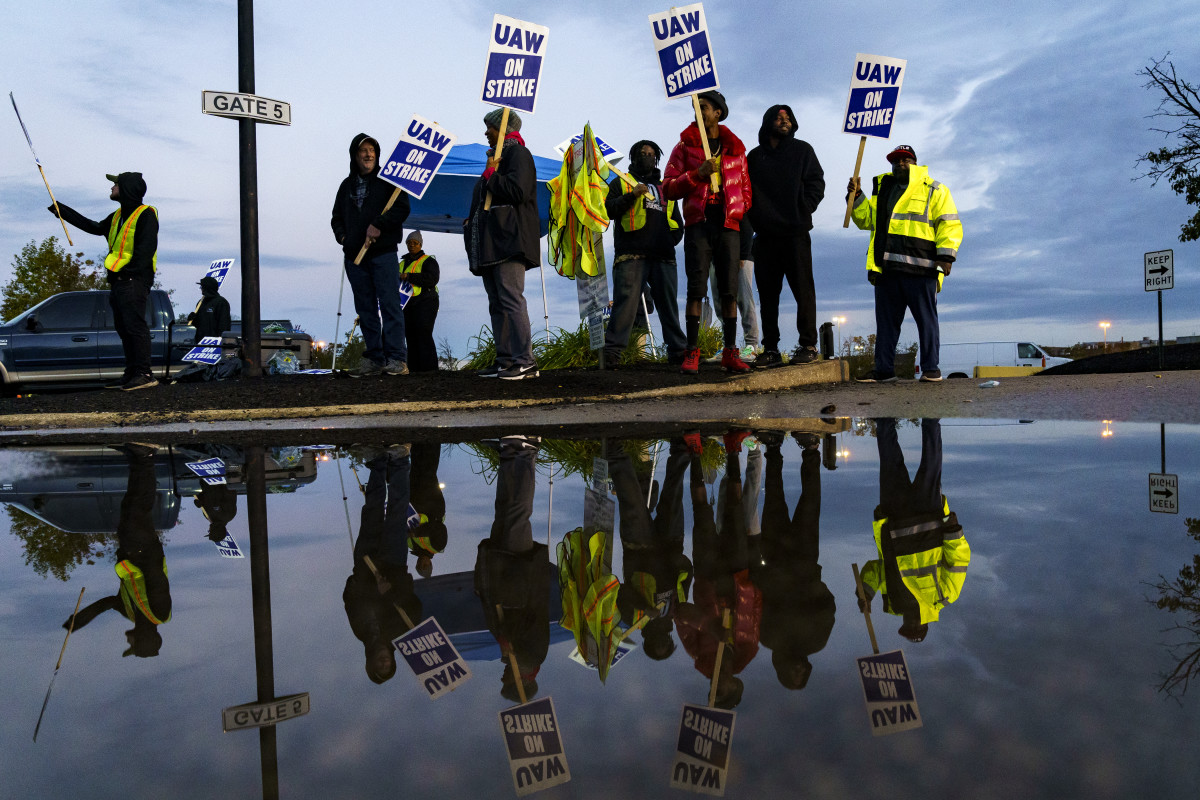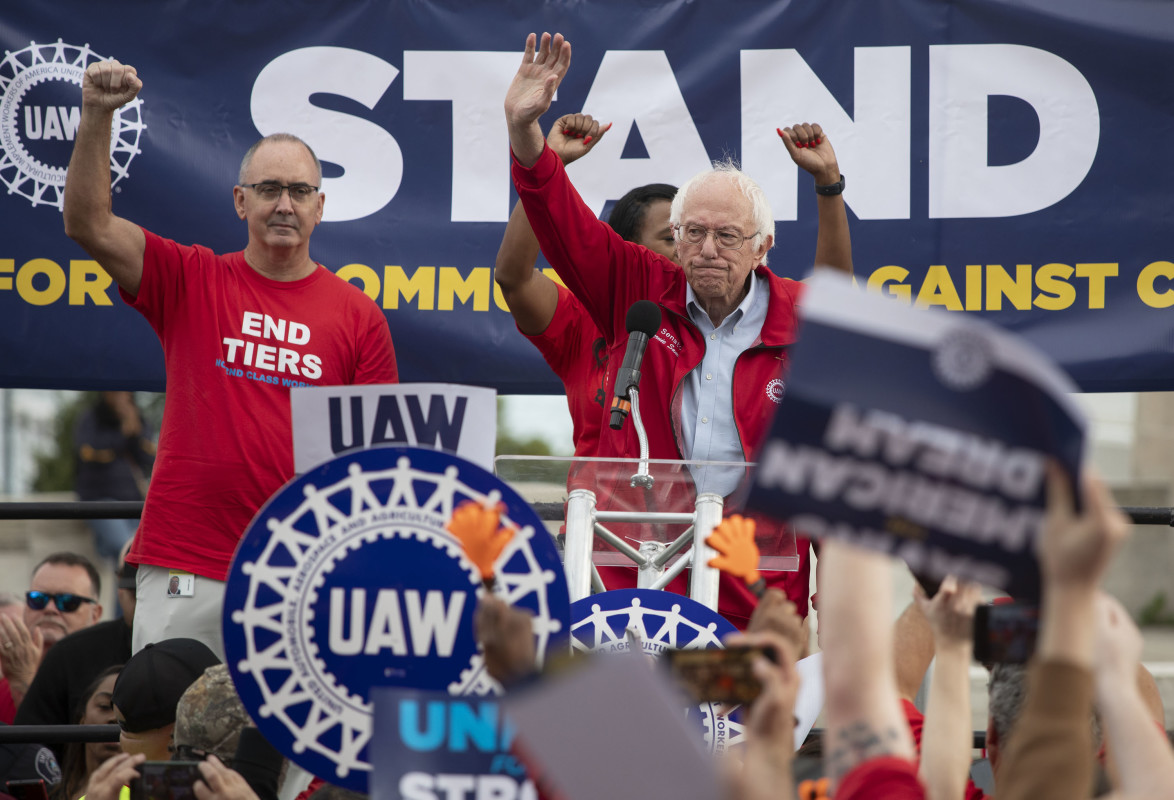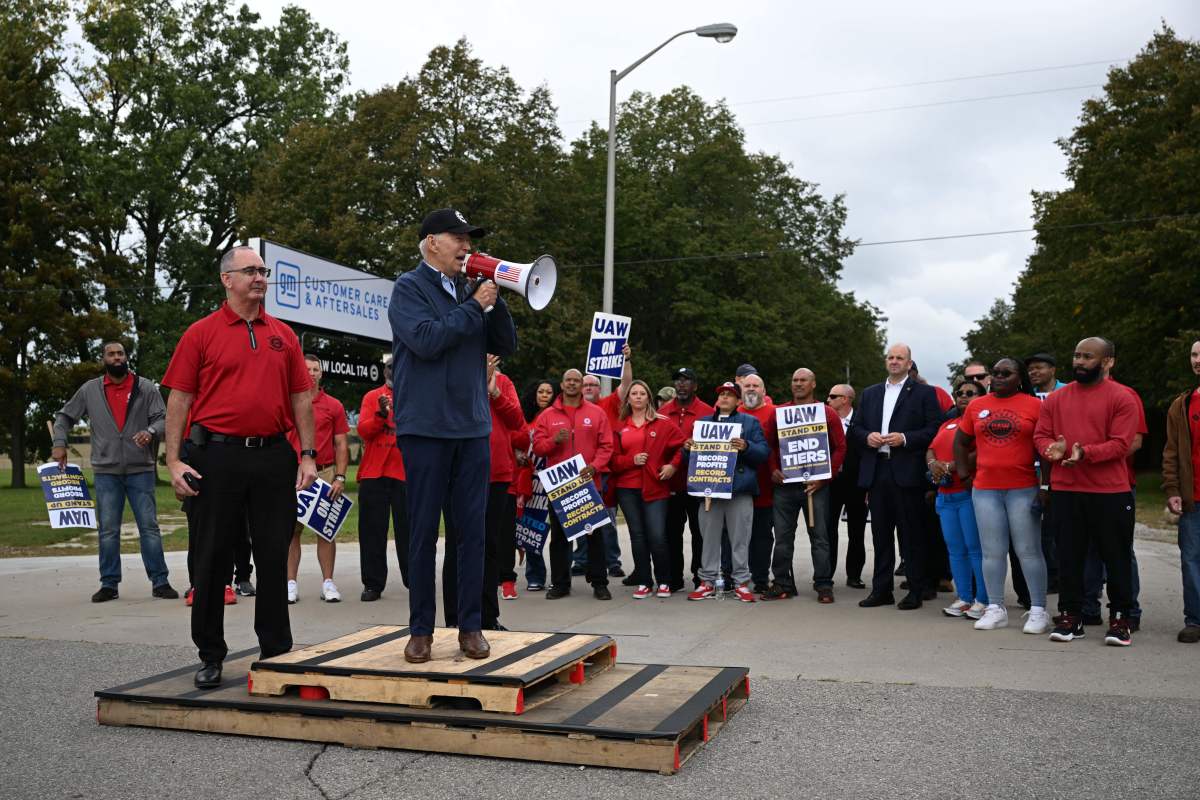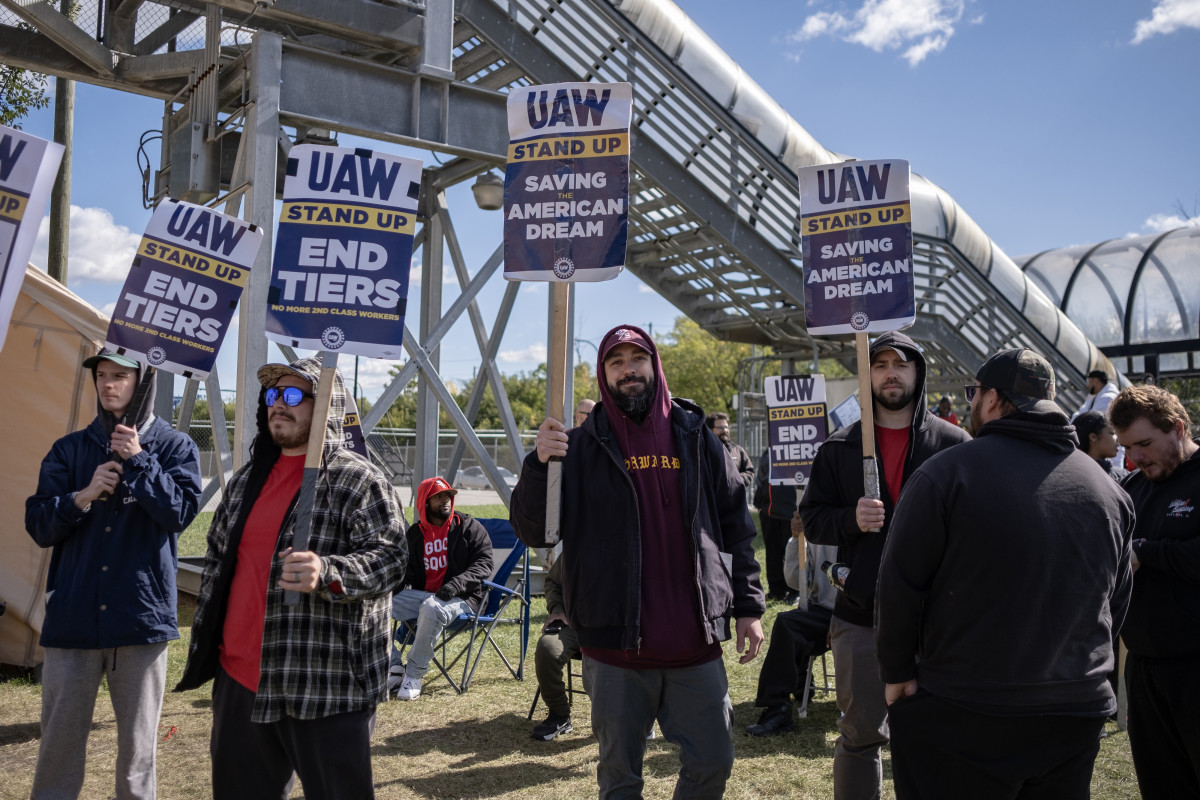
After more than 40 days of steadily expanding strike action by the United Auto Workers union against the Detroit Three — Ford F, General Motors GM and Stellantis STLA— the picket lines are officially cleared and new contracts are in hand.
The new contracts at each of the Big Three automakers prominently feature 25% wage increases, down from the 40% increases the union was initially demanding. The contracts also grant workers cost-of-living adjustments, larger retirement contributions and better benefits, among other protections.
Though the strikes are complete, the contracts are not yet completely official; UAW members must still ratify each contract. Once ratified, workers will receive an 11% raise, with the remaining pay raises to come over the course of the four-and-a-half-year contract.
Related: After $8 billion success, auto union targets Tesla, other automakers
A strike timeline
After negotiations collapsed, the UAW union, led by President Shawn Fain, began its series of rolling strikes against all three automakers Sept. 15. The initial strike action called on 12,700 of the union's 146,000 members to walk out.
The union at the time was demanding 40% wage increases and a 32-hour work week.
After a week that featured some progress at Ford, but no movement at GM or Stellantis, Fain expanded the strike against GM and Stellantis Sept. 22, leaving Ford, for the moment, untouched. By Sept. 22, approximately 10% of the union's total membership was on strike.
Fain switched around his pressure levers on Sept. 29, initiating a strike expansion at GM and Ford and this time leaving Stellantis untouched.
By mid-October, the union decided to change up its strategy, abandoning its earlier method of announcing strikes every Friday morning. Fain wanted to turn up the pressure; surprise strikes and bigger targets drifted into his sights.

The first of these surprise strikes put Ford's highly profitable Kentucky Truck Plant on strike Oct. 12. The move cost Ford $150 million per week. The union continued this massive escalation against both GM and Stellantis Oct. 23, targeting each company's most profitable factories and sending the total number of striking members up to around 45,000.
After a few days in the throes of this heightened pressure, the automakers folded. Ford went first, making a tentative agreement with the union on Oct. 25; Stellantis followed Oct. 28. And GM's agreement came Oct. 30.
Related: Prominent Ford executive has a stark warning and a desperate plea for auto strikers
The winners
The members of the union, in addition to their president and the union itself, are the obvious winners of the strike. Though they didn't quite get everything they asked for (a 32-hour work week and 40% pay raises) workers were granted record contracts that featured worker protections, better profit-sharing and better benefits, in addition to significant pay raises.
The outcome also represents a vote of confidence for Fain, who was elected to his current leadership position this year by a margin of only 500 votes.
His success with the Detroit Three comes following a series of scandals with UAW executive leadership that saw two of the union's previous three presidents sent to prison.
Related: Tesla Chief Elon Musk has a warning for Detroit 3 amid ongoing auto strikes
The losers
The losers of the strike seem to far outnumber the winners. The Detroit Three have certainly not come out on top; in the wake of the strikes, both Ford and GM pulled their full-year guidance, citing lingering uncertainty.
Ford said it had lost $1.3 billion due to the strikes. Once the contract is ratified, Ford executives said that their vehicles will be around $900 more expensive each, a bump in price that will force the company to explore enhancements of efficiencies across the board.

As of Oct. 24, GM said that the strikes had cost the company more than $800 million. The company said at the time that the strikes would cost the company another $200 million per week as long as they continued.
Both companies reported dips in third-quarter revenue due to the strikes. And both companies have significantly pulled back on their planned electric vehicle investments.
Stellantis said Tuesday that the strikes cost the company around $3.2 billion in revenue.
And, even with the strikes concluded, getting the plants back into full operation will take time, meaning it will take even longer for each of the Detroit Three automakers to get back on track.
An Oct. 23 estimate from the Anderson Economic Group found that, after five weeks of strikes, the industry had lost a total of more than $9.3 billion. The losses, which included those in supplier economies and those posted by the automakers, included hundreds of millions worth of lost wages.
Related: Former Ford CEO has a blunt warning for the electric vehicle industry
Implications of the strike
Before the strikes even began, analysts, investors and executives were examining the implications of a prolonged strike and the implications of a historic contract.
Deepwater Management's Gene Munster and Wedbush's Dan Ives both said from the start that the real winner of the strikes was Tesla TSLA. The reason is twofold.
First, they said, a prolonged strike action would significantly slow down the automakers' EV plans, pushing back the date that they might actually be able to compete with Tesla in the sector. And second, the additional labor costs a new contract will incur, they said, would further hurt legacy automakers' profit margins (in an already unprofitable area) further cementing Tesla's dominance in the market.

These predictions of slowing EV plans and higher per-vehicle costs have already come true.
The combination of the price war that Tesla has been leading and the impact of the strikes, Former Ford CEO Mark Fields said, will continue to hurt EV profitability across the industry, pushing back that broader mass-adoption curve.
Another implication of the historic contracts, Fields warned, could involve a greater exploration of in-factory automation by automakers in an attempt to make up for the higher labor costs they must now shell out.
The UAW and Tesla
Another result of the union's historic win might take a few years to surface: enhanced unionization at other companies, namely including Tesla.
Fain earlier in October referred to workers at Tesla, Toyota and Honda as the "UAW members of the future."
And in the wake of the wins with the Detroit Three, the union said in a statement: "When we return to the bargaining table in 2028, it won’t just be with the Big Three, but with the Big Five or Big Six."
A day later, Bloomberg reported that a UAW organizing committee was speaking to Tesla workers at a Tesla plant in Fremont, California. The union was reportedly discussing the value of collective bargaining and offered to fund any efforts by Tesla workers to unionize.
Neither Tesla nor the UAW returned TheStreet's requests for comment.
This presents a serious threat to Tesla Chief Elon Musk, who has long been vocal about his staunchly anti-union standpoint.
Munster, responding to the report, said that he expects Tesla workers to vote down the UAW in return for 20% pay increases. But he said that the situation will take several months to play out fully.
"We have begun to turn the tide on the war on the American working class," Fain said in a statement. "And we truly are saving the American dream."
Related: Elon Musk's Tesla has a new union problem on the heels of historic union win
Get investment guidance from trusted portfolio managers without the management fees. Sign up for Action Alerts PLUS now.







